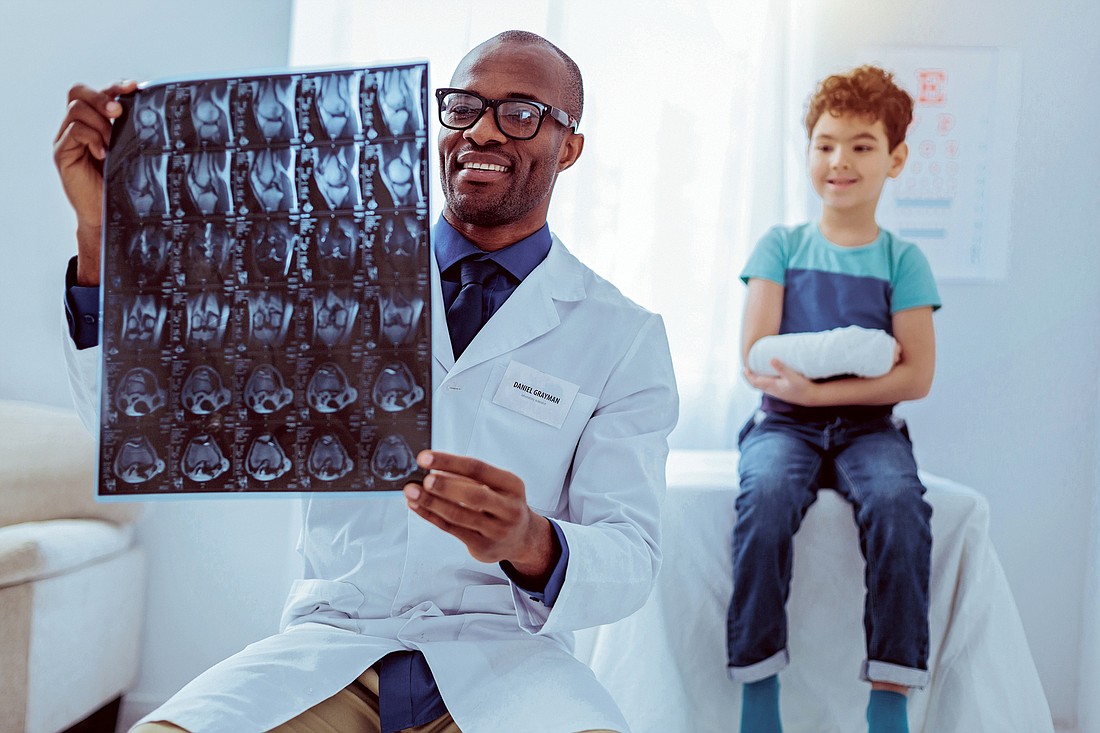- July 26, 2024
-
-
Loading

Loading

Since the outbreak of COVID-19, questions regarding health care have been pushed to the forefront of many people’s minds.
Many involve the coronavirus itself, but a few questions also involve issues unrelated to the virus.
What are signs that I need to go to the hospital?
What do I do if I need medical attention that isn’t coronavirus related?
Dr. Omayra Mansfield, who serves as vice president and chief medical officer for AdventHealth Apopka and AdventHealth Winter Garden, said the answer to the first question depends on the symptoms one is experiencing in that moment.
“While certainly COVID-19 is on the forefront of everyone’s mind, it doesn’t mean that we don’t have other patients who have other illnesses who are still coming to the hospital,” Mansfield said. “What I would ask them to do is really listen to their bodies and use their best judgment, because we know when something is out of our normal and also just the severity of symptoms.
“If someone is having symptoms where they are having shortness of breath … or chest pains or if they are having neurological symptoms — weakness, change in speech and altered mentation — then absolutely, the hospital and the emergency department is here 24/7 for a reason,” she said.
Along with those specific symptoms and issues, Mansfield said those experiencing other issues — such as limb-threatening situations — also should go to the hospital.
But what about for the non-life-threatening scenarios? The answer is to utilize your primary care doctor — although it likely will have to be done in a virtual way.
Many medical offices — such as Paramount Urgent Care — have closed their physical locations, but that doesn’t mean they can’t offer assistance. Paramount is offering telemedicine to help those in need of non-emergency medical assistance, said Paramount Urgent Care Marketing Director Suzie Socier.
“They can go to our website, and we have a phone number listed where they can call in and schedule for a telemedicine visit, which they can do by video or phone,” Socier said. “It has been around a while, but I don’t think it has been utilized to the extent that it is used now. You want to know that people with everyday needs are able to be taken care of.
“We have some great providers, and they are trained to be able to assess what the next step is for a patient,” she said. “If they call us concerned about an injury or a cut and they don’t know, ‘Do I need stitches?’ or ‘Where should I go?’ we still have the capability to talk with them.”
One of the big goals is keeping those who don’t have life-threatening issues out of the hospital — allowing those at AdventHealth and Orlando Health to focus on their jobs of dealing with serious situations, as well as the coronavirus.
Socier said Paramount Urgent Care has seen an increase in calls, while Mansfield said AdventHealth had seen a decrease in the number of people visiting.
Another organization that has seen an increase in patients is Community Health Centers, which has locations throughout the area. Unlike other facilities, it has kept its doors open while taking significant precautions in keeping staff and patients safe.
So far, its staff has seen an uptick in patients, especially as it relates to emergency dental care, said Dr. Gregg Stewart, CHC’s chief dental officer.
“Since March 23, we have seen (more than) 700 urgent or emergent dental individuals, and of those, almost half of them were truly very, very bad emergencies,” Stewart said. “Had we not been here, they most likely would have ended up in the ER. We’re working with our community partners to take care of this urgent need during this time.”
Just like regular doctor’s offices, a big issue at the moment is that many dental offices are either closed or only serving patients in need of emergency dental care. At CHC, emergencies are dictated by three criteria: pain, swelling and trauma.
CHC also is utilizing telemedicine for its patients and their needs. The big takeaway here is that if you have medical needs, you need to seek assistance like you usually would, said CHC President and CEO Debra Andree.
“We don’t want someone deferring care and doing more harm than good,” Andree said. “Medical issues will continue — just like they did before the pandemic — that are not related to the COVID-19 virus, and there are certainly many things that need to be assessed and treated.”